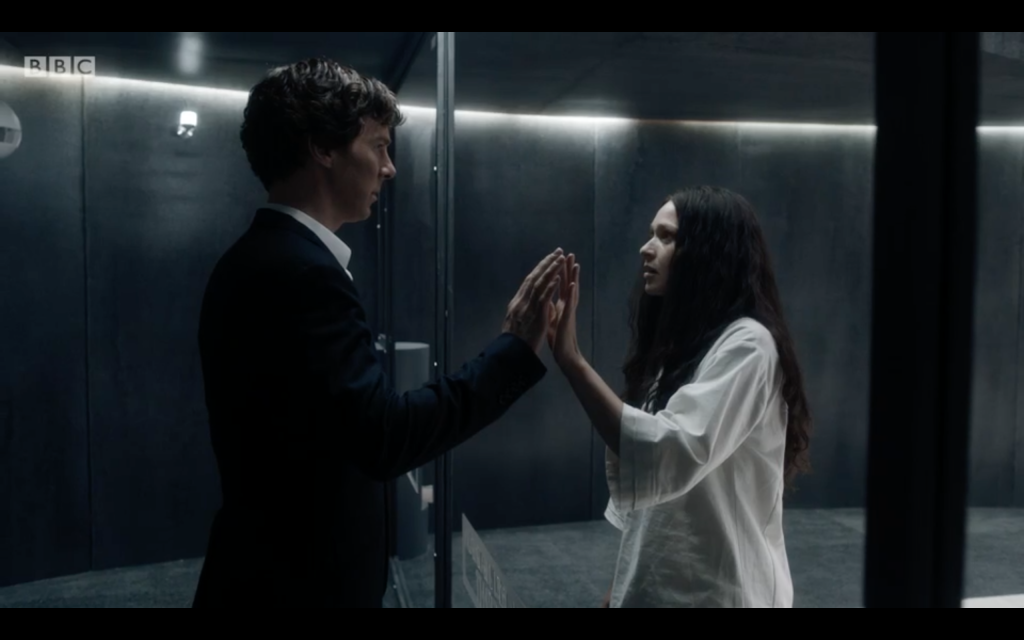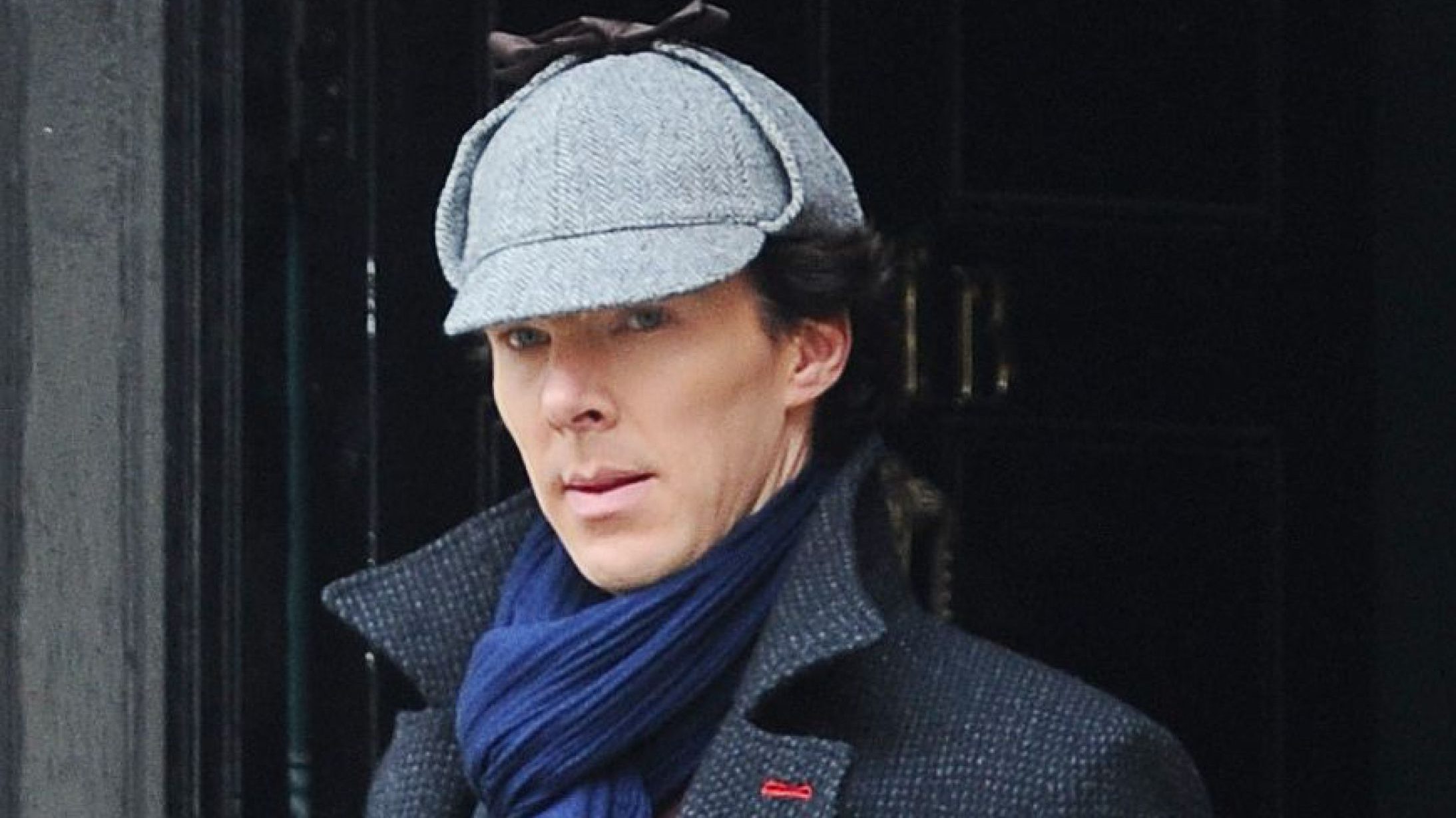Warning: spoilers and grand reveals ahead.
The two-year wait is over, and the conclusion to BBC’s Sherlock is finally here.
You can’t escape the nostalgia that creeps in during the showreel credits, the cheery violins and occasional glimpses of Benedict Cumberbatch’s high cheekbones, and they will all be missed.
Was the long awaited conclusion exciting? Yes. Did it deliver on its promise to introduce a villain more terrifying than Moriarty? Arguably.
The problem with the grand finale is that you can see the gears in director Steven Moffat’s head turning as the plot starts getting complicated.
During the first minutes of the episode (after some curious events on a plane which we will get back to in a second), Mycroft reveals he has hidden their raving mad sister on a Shutter Island somewhere in the ocean.
To find out how she escaped to haunt them in the previous episode, Sherlock and Mycroft pay her a brotherly visit – John just seems to be around to provide “emotional context”.

Then, in a not-so-unusual plot twist, they find themselves trapped in a game conducted by the big bad villain.
In an attempt to force Sherlock to abandon his morals for the sake of survivalism, Eurus presents him with a gun and makes him choose between his brother and his best friend, but accepts defeat when he points the gun to his own head.
You get the gist. There is the usual self-exploration, a revealed secret about Sherlock’s deep, dark past, and so many people are almost dying there’s no time to feel despair at their departures.
There is always a big chunk of seemingly thought out information that the audience is not clever enough to understand.
There is always an extremely intelligent character poking fun at his best friend for not having the faintest idea of what’s going on.
While these storylines sometimes follow through with no immediately obvious plot holes, there is always one problem. Moffat simply is not as clever as he thinks he is.
Before you rave about his mastery of complicated narratives, make a list of the mysteries left unsolved and unmentioned after yesterday’s episode.
For one, there is the enigma of a young girl trapped on a passenger plane in which everyone is unconscious, including the pilot.
This is introduced as part of Eurus’s riddles after she traps her brothers in the fortress, or rather as leverage to threaten the boys with if they refuse to cooperate.
The passenger plane is on crash course towards, you guessed it, London, and Sherlock again the only one who is able to help.

As to why the young girl is the only one not affected by what I’m assuming is an airborne sedative, no one ever explains.
If this was in fact set in motion by drugging the passengers, who would Eurus have contacted to infuse the plane’s oxygen with surgical anaesthesia?
While the drug may have been available in the asylum, she can’t have used her “influence” on all airport personnel to make them use it on the passengers.
An influence which has yet to be explained in any detail, by the way.
There are also a number of airports in London, all of which have control towers, so logically someone on the ground would have been alerted to the fact that a scheduled passenger plane was off course and heading for the Big Ben.
The magical explanation to all these questions is that there never was a child on the passenger plane, and the voice on the phone was Eurus, who told Sherlock this story as a cry for help.
To me, this just sounds like lazy writing.
Another gaping hole in the storyline, and perhaps the most glaring, is “we never had a dog”.
This is aggressively exclaimed by Eurus as Sherlock tries to make her confess to drowning his dog in a well, but the “dog” turns out to be Sherlock’s best friend as a child, Victor Trevor.
I mean, come on. Really? Redbeard kept showing up when Sherlock was depressed or dying, but the frequency of his appearances did suggest he was there as more than proof of his owner’s innocent childhood.
Still, if Sherlock grew up with a boy called Victor Trevor and the two were inseparable, why have the disturbingly sensible Holmes parents never mentioned a childhood friend?
On a side note, I am tremendously relieved that the loss of Sherlock’s innocence was not caused by a missing Irish Setter. Most people have experienced losing a pet in their early years, but few become highly functioning sociopaths.
At risk of making the same mistake as Steven Moffat by losing my train of thought, there is one thing I believe we can all agree on: he has ambition.
He does have a knack for embarking on journeys which no viewer can imagine the end to, but his common mistake is to lose sight of the coastline.
To his credit, Moffat did create the best modern interpretation of Sir Arthur Conan Doyle’s infamous detective, regardless of his faults, and the first two seasons are still my go-to crime mysteries for rainy days.
That said, the cheesy 80s filmography tears a gaping hole in the fourth wall.
A Sherlock who escapes his exploding flat with luscious curls and both eyebrows intact had his place in 2010, but if Moffat considers writing a season five he really needs to be stopped.

